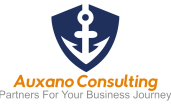In today’s competitive talent market, retaining top performers is a top priority for businesses of all sizes. While competitive salaries and attractive benefits packages are important, a recent McKinsey study revealed a surprising truth: the leading reason employees leave their jobs is a lack of career development and advancement opportunities.
This revelation highlights a critical shift in employee priorities. Modern workers crave growth, challenge, and a clear path forward in their professional journeys. Companies that fail to prioritize career advancement risk losing their most valuable assets – their skilled and motivated employees.
The High Cost of Turnover:
High employee turnover is a major drain on resources. Not only are recruitment and onboarding costs associated with replacing lost talent, but there’s also a loss of institutional knowledge and a dip in productivity during the transition. A study found that the average cost of replacing an employee can be up to 20% of their annual salary.
Benefits of Prioritizing Career Advancement:
Investing in career development programs isn’t just about employee satisfaction, it makes good business sense. Here are some compelling reasons to prioritize career advancement for your workforce:
- Increased Employee Retention: Investing in your employees’ growth demonstrates your commitment to their long-term success. This fosters loyalty and reduces turnover. Employees who see a future with a company are less likely to jump ship. Providing clear pathways for advancement demonstrates that you value their long-term contribution.
- Enhanced Employee Engagement: Growth opportunities boost morale and motivation. Engaged employees are more productive, innovative, and invested in the company’s success.
- Improved Talent Pipeline: By fostering internal talent, you create a ready pool of qualified candidates for future leadership positions. This reduces reliance on external hiring and ensures a smooth transition of knowledge and expertise.
- Motivation: The prospect of promotions, new challenges, and increased responsibility can be a significant motivator, leading to higher productivity and innovation.
- Succession Planning: By nurturing internal talent, companies build a strong internal pipeline of qualified candidates for future leadership roles. This reduces reliance on external hiring and ensures a smooth transition when positions become available.
- Stronger Employer Branding: A reputation for employee development attracts high-performing individuals who value career growth.
Building a Culture of Career Advancement
Creating a culture of career advancement goes beyond simply offering occasional training sessions. Here are some key strategies to consider:
- Develop Clear Career Paths: Define advancement opportunities within specific roles and departments. This transparency helps employees visualize their long-term future with the company.
- Individualized Development Plans: Work with each employee to identify their career goals and create a personalized roadmap for achieving them. This could involve training programs, mentorship opportunities, or participation in challenging projects.
- Leadership Development Programs: Offer workshops, mentorship programs, and tuition reimbursement opportunities to help employees develop new skills and knowledge.
- Facilitate Internal Mobility: Make it easy for high-performing employees to move into new roles within the company. This demonstrates your commitment to talent mobility and internal growth.
- Performance Reviews with a Growth Mindset: Provide regular employee feedback on their performance. Performance reviews shouldn’t just be about evaluation; they should be opportunities to discuss career aspirations and set goals for development. This ongoing dialogue keeps employees engaged and helps them develop a roadmap for advancement.
- Recognition and Reward: Acknowledge and reward employees who demonstrate initiative and take on additional responsibilities. This reinforces positive behaviors and motivates others to strive for advancement
Addressing Concerns: Obstacles and How to Overcome Them
Concern: Investing in career development is expensive.
Answer: While there are costs associated with training programs and mentorship initiatives, the cost of losing a valuable employee due to a lack of growth opportunities can be far greater. Retention programs not only save on recruitment and onboarding but also ensure continuity of knowledge and expertise within the organization. Many programs, like mentorship initiatives, can be implemented with minimal financial outlay.
Concern: What if employees leave after we invest in their development?
Answer: A strong employer brand built on a culture of growth and development fosters loyalty. Employees who feel valued and see a future within the company are less likely to leave, especially if they’ve invested their own time and effort into their development path within the organization.
Taking Action: Practical Tips to Get Started
Ready to launch your own career advancement initiative? Here are some practical steps to get you going:
- Conduct a Needs Assessment: Survey your employees to understand their career aspirations and development needs.
- Develop a Budget: Allocate resources for training programs, mentorship initiatives, and other career advancement activities.
- Create a Career Development Framework: Outline the different career paths available within your organization.
- Empower Managers: Equip managers with the skills to conduct meaningful career conversations with their employees.
- Track Your Progress: Monitor the impact of your career advancement programs and make adjustments as needed.
A Word on Different Industries
While the core principles of career advancement remain consistent, the specific programs and approaches might differ across industries. For example, a tech company might focus on training employees on the latest software and hardware, while a financial services firm might prioritize leadership development programs for aspiring managers.
The Takeaway:
By prioritizing career advancement, companies can create a win-win situation. It can benefit both employees and employers. For employees, it can lead to higher pay, better work-life balance, a sense of purpose, and leadership opportunities. For employers, it can attract more job candidates, reduce talent acquisition costs, close skill gaps, and increase employee retention and satisfaction.
Share your thoughts and experiences with Auxano Consulting on career advancement programs in the comments below.
Want to learn more? Connect with Linnet Dave, Auxano’s Director and Executive coach on linnet@auxano-consulting.com or connect with her at +919820668179 if you need to get a customized learning Intervention done for your organization.
(Written by Vineeta, Feature Image sources and credits: AI Generated)

